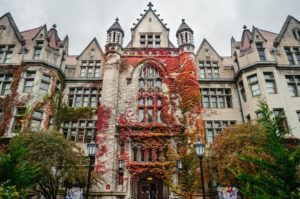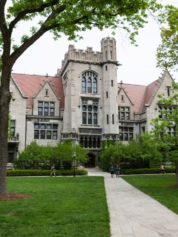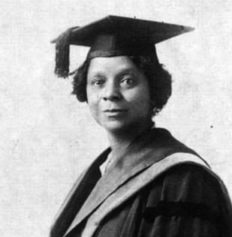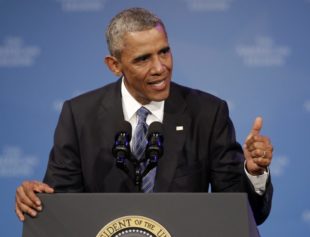
University of Chicago’s Cobb Hall.
In a move contrary to other major universities, the University of Chicago is opting to get rid of “safe spaces” for students who have become conditioned to be offended by beliefs and ideas that contrast with their own.
The prestigious university sent a letter to the incoming class of 2020 asserting that it would in no way succumb to the pressure of political correctness, but rather stand firmly by its belief of free speech, thought and expression.
“Members of our community are encouraged to speak, write, listen, challenge and learn without fear of censorship,” the letter reads. “Our commitment to academic freedom means that we do not support ‘trigger warnings,’ we do not cancel invited speakers because their topics might prove controversial, and we do not condone the creation of intellectual ‘safe spaces’ where individuals can retreat from ideas and perspectives at odds with their own.”
According to Fox News, the University of Chicago is consistently ranked as one of the top universities in the world, admitting just 8 percent of the nearly 31,000 students who applied to enter the class of 2020.
While the controversial move was a breath of fresh air for some, the exclusion of student safes spaces is still a tough sell for others. In the letter, the university references a report on the importance of academic freedom and freedom of expression.
“Of course, the ideas of different members of the University community will often and quite naturally conflict,” the report, authored by the university’s Committee on Freedom of Expression, states. “But it is not the proper role of the University to attempt to shield individuals from ideas and opinions they find unwelcome, disagreeable, or even deeply offensive.”
“Although the University greatly values civility, and although all members of the University community share in the responsibility for maintaining a climate of mutual respect, concerns about civility and mutual respect can never be used as a justification for closing off discussion of ideas, however offensive or disagreeable those ideas may be to some members of our community,” it continues.
The institution’s removal of safe spaces is a stark contrast to what other universities have implemented in order to make students feel “secure.” For instance, Case Western Reserve University in Cleveland, Ohio provided counseling and designated safe spaces for students offended by the events of last month’s Republican National Convention.
Chicago’s DePaul University also sought a safe space to protect students from the free, oftentimes highly offensive, speech of conservative blogger Milo Yiannopoulos. In that case, two Black students stormed the stage to prevent Yiannopoulos from speaking at a campus event.
Just last week, students of color at Pitzer College in California moved to create their own safe spaces by discouraging white students from applying for living arrangements at off-campus housing. According to student Nina Lee, POCs shouldn’t be forced “to tiptoe around fragile white feelings in a space where we just want to relax and be comfortable.”
Despite some push back, the University of Chicago is standing firm by its refusal to “coddle” the minds of its students. In the words of former university president Hanna Holborn Gray, “education should not be intended to make people comfortable, it is meant to make them think.”


